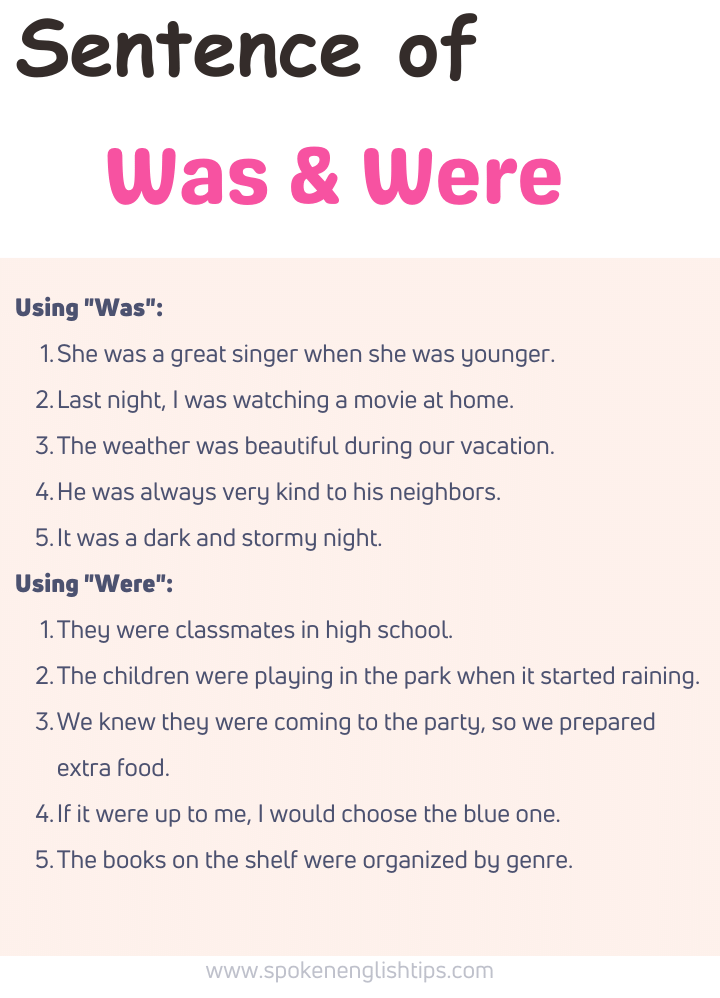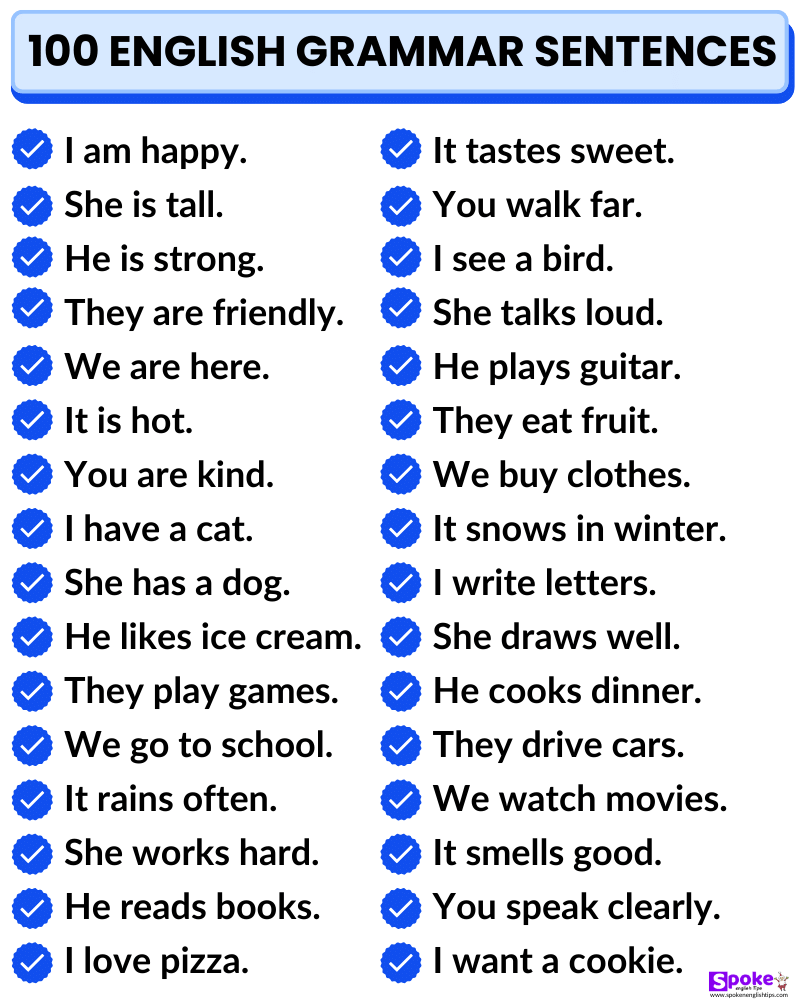Learning the use of was were isn’t a difficult task. In this article, I gonna talk about complete details about the use of was and were in sentence and their rules, examples with exercises for you.
You will learn, How to use verbs to be-was, and were in sentences
Use of Was and Were
Auxiliary verbs, such as “was” and “were,” are used in English to help form various tenses, voices, and aspects of verbs. Here’s a breakdown of how they are used:
1. ‘Was’:
Past Simple Tense: “Was” is used with singular subjects (e.g., I, he, she, it, singular nouns) to indicate an action that occurred in the past.
Example: She was at the park yesterday.
Past Continuous Tense: “Was” is combined with the present participle form of the main verb to indicate an ongoing action in the past.
Example: I was playing soccer when it started raining.
Subject for the First Person Singular (I): “Was” is used as the past tense form of “to be” for the first person singular.
Example: I was at the store.
2. ‘Were’:
Past Simple Tense (Plural): “Were” is used with plural subjects (e.g., we, you, they, plural nouns) to indicate past actions.
Example: They were very excited about the trip.
Past Continuous Tense (Plural): “Were” is combined with the present participle form of the main verb to indicate an ongoing action involving plural subjects in the past.
Example: We were studying for our exams all night.
Hypothetical or Unreal Situations: “Were” is often used in the subjunctive mood to express hypothetical or unreal situations.
Example: If I were a millionaire, I would travel the world.
Conditional Sentences (Second Conditional): “Were” is used to express unlikely or hypothetical conditions in conditional sentences.
Example: If he were here, he would help us.
Using “Was”:
- She was a great singer when she was younger.
- Last night, I was watching a movie at home.
- The weather was beautiful during our vacation.
- He was always very kind to his neighbors.
- It was a dark and stormy night.
Using “Were”:
- They were classmates in high school.
- The children were playing in the park when it started raining.
- We knew they were coming to the party, so we prepared extra food.
- If it were up to me, I would choose the blue one.
- The books on the shelf were organized by genre.

Use of Was and Were in Sentences
Using “Were”:
- They were best friends since childhood.
- The kids were playing in the garden all afternoon.
- We knew they were coming to the concert, so we saved them seats.
- If it were a little warmer, we could go swimming.
- The twins were identical.
- The mountains in the distance were covered in snow.
- The dishes in the sink were piling up.
- There were no more cookies left in the jar.
- The stars at night were incredibly bright.
- The students in the class were very attentive.
- The options on the menu were extensive.
- The books on the shelf were neatly arranged.
- The flowers in the garden were in full bloom.
- The streets were deserted at that hour.
- The tickets for the concert were sold out.
- The instructions were clear and easy to follow.
- The horses in the field were grazing peacefully.
- The clouds in the sky were forming interesting shapes.
- The guests at the wedding were dancing all night.
- Our plans were canceled due to bad weather.
Using “Was” and “Were” in Hypothetical and Unreal Situations:
- If I were a bird, I would fly to far-off places.
- I wish I were taller.
- If he were here, he would help us.
- She acted as if she were the queen.
- I felt as if I was floating on air.
Using “Was” and “Were” in Conditional Sentences:
- If it rained, we were going to stay indoors.
- I would be surprised if they were not coming.
- If I had known, I was going to bring an umbrella.
- If it was sunny tomorrow, we could have a picnic.
- If they were on time, we could catch the early train.

